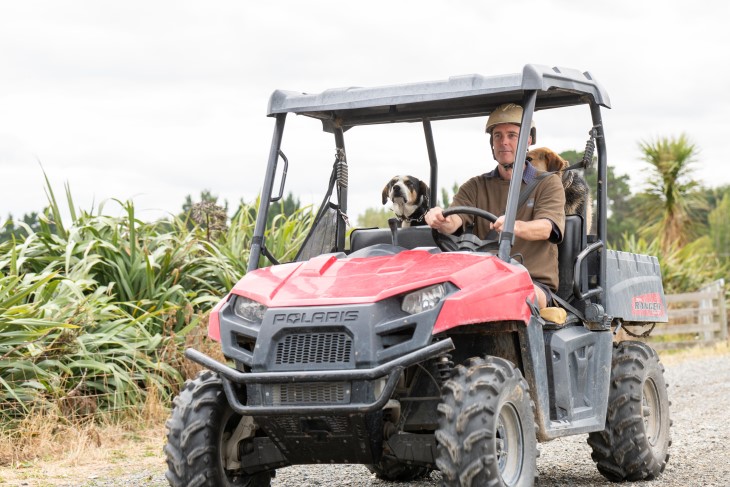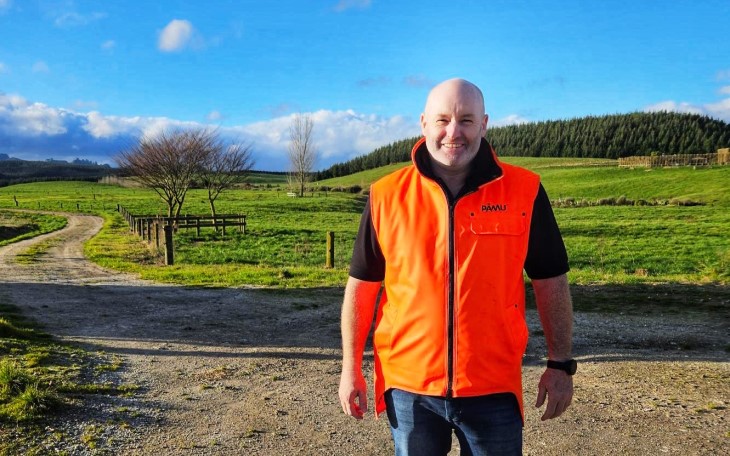Kane’s story: Sharing the tools to support farmer wellbeing
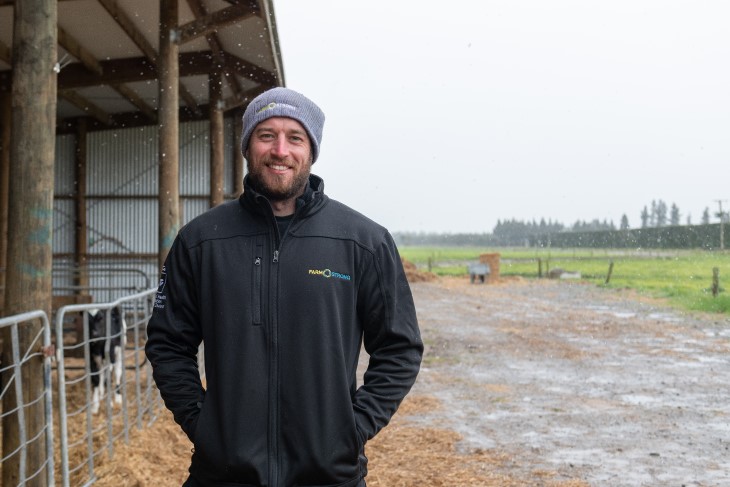
Dairy farmer Kane Brisco has become a cult hero in the farming community. He’s an advocate for Farmstrong – an ACC-supported rural wellbeing initiative – and is encouraging farmers to invest in their mental wellbeing.
It’s lucky Kane Brisco is down to earth. It would be easy for the widespread praise for his first book to go to his head.
It’s been a year since the Taranaki dairy farmer released his critically-acclaimed ‘Tools for the Top Paddock’ and the reception has been overwhelming for the low-key father of three.
“Man, it’s been pretty surreal,” the 36-year-old says.
“The amount of heartfelt and meaningful messages has been overwhelming. To hear how sharing my experiences in this book has made a difference to others’ lives is humbling and touching.”
‘Tools for the Top Paddock’ creates awareness of the daily pressures on farmers in New Zealand, but does much more than that.
It’s honest, relatable and full of practical advice that’s not only relevant to farmers, but for anyone facing their own mental health challenges.
Writing a book was a big step out of Kane’s comfort zone.
“I thought it was all a big hoax until I actually held it in my hand,” he says with a laugh.
“I always had this feeling that someone was going to ring me up and say, ‘This is just a big joke’.”
Kane says it was a tough journey as he had to be vulnerable to help others.
“I know how difficult it is to go through a mental health challenge and how easy it is to get there. I found another purpose in trying to guide people through that. I wanted to get into giving, which I’d never done before.”
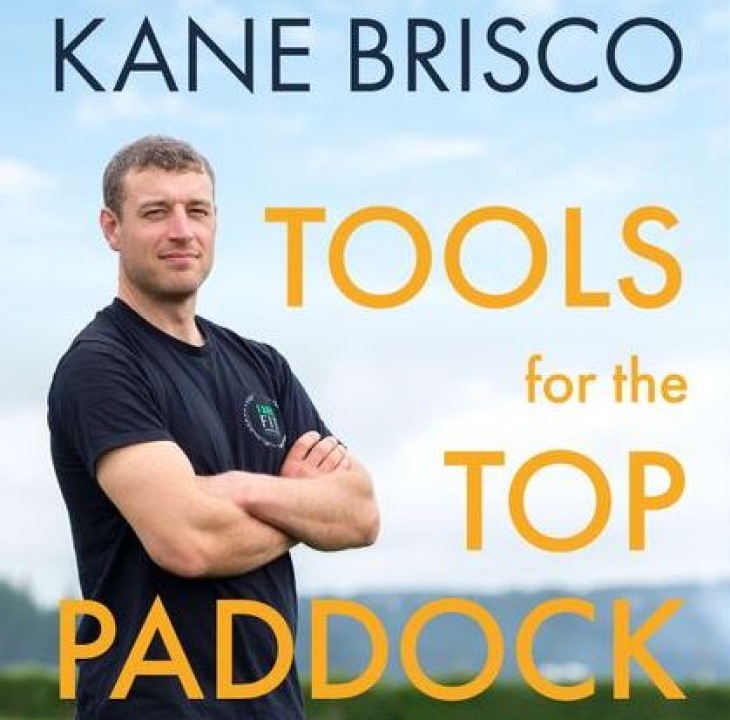
Dream turns into nightmare
From as early as he can remember, Kane wanted to be a farmer.
His uncle had a dairy farm and Kane and his two brothers got shipped out there on weekends and school holidays to work. They loved every minute.
“I just thought it was the bee’s knees,” he says.
“You get to go out and play on tractors and motorbikes, dig the dirt and run around the place – I just loved it all. I couldn’t imagine doing anything else.”
Kane then got to live that dream. He worked hard and progressed through the ranks quickly to a place where he owned his own business. He had a big mortgage and deep down he didn’t feel ready for the challenge, but things seemed to be going well.
“My first season of 50/50 share milking was the record high payment of $8.40. And I thought I’d cracked life,” he says. “I thought, ‘Here we go, all my hard work has paid off’, and I was just rubbing my hands together.”
Then the rug got pulled out from under him. The share milking price dropped rapidly to $3.90 and he found himself in a hole.
The way Kane reacted to the mini-crisis was detrimental to his health. He tried to work harder, stopped playing rugby and going out, and he lost all of his connections.
He wasn’t exercising, was working long hours and eating poorly. For the first time in his career, he went into the busy season of calving in spring and was struggling.
“I had massive fatigue. Poor decision-making was probably the first effect of the fatigue and it started creating a bit of doubt in my mind about my abilities. Decision making was harder.”
That seed of self-doubt soon turned into a monster.
“Before you know it, you don’t know who you are or what you’re doing. I remember just not wanting to be there. I was thinking, ‘I just don't want to be on the farm. I don't want to do this anymore.’ I hated it,” he says.
“That was quite shocking for me. I was living my dream and I didn’t want to be there, which was quite scary – that was my purpose.”
The personal cost of the stress and fatigue was huge.
“I just about lost my family, I wasn’t nice to be around. I was getting home and I didn’t have the ability to play with the kids and cope with their energy. All I wanted to do was chuck my head under the covers and hide.”
It was the lowest point in his life. So he looked in the mirror and realised he had to prioritise his wellbeing.
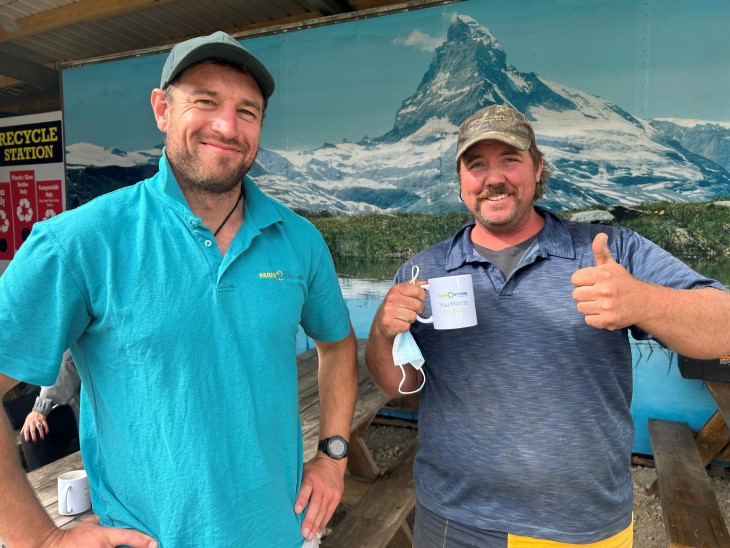
Dairy farmer Kane Brisco with fencing contractor Trent Feather at a rural wellbeing event.
Stress leads to injury
Kane says the link between stress and accidents on the farm is undeniable.
He was lucky. He didn’t have any serious injuries, but he had a couple of near misses on his bike and tractor that were eye-opening experiences.
“I was simply rushing and not paying attention. I was so tired and had so much to do that I found myself zoning out. That escapism happens when you’re not happy and aren’t enjoying your work.”
Last year, ACC accepted over 22,630 farming-related injury claims, which came at a cost of $96 million to help people recover. This was the highest cost over the past five years.
An ACC-funded study for Farmstrong shows 58 per cent of injured farmers linked their injuries to stress associated with farm work. A quarter of them said it was a major factor.
Research shows exhaustion, lack of sleep, the daily stresses of farming, isolation from friends and family, and being unable to take a break all increase the risk that a farmer or farm worker will have an accident.
ACC is a strategic partner of Farmstrong, alongside rural insurer FMG and the Mental Health Foundation.
Farmstrong is a rural wellbeing initiative for farmers and growers to help them ‘live well to farm well’. It encourages farmers to share their stories and look after themselves, as well as they do their pasture and livestock.
ACC Workplace Safety Manager Virginia Burton-Konia says research shows 90 per cent of all injuries are predictable and therefore preventable – and those in the agriculture sector are no different.
“New Zealand’s farmers are among the best in the world at what they do,” she says.
“But sometimes we don’t make the best decisions if we’re feeling tired or under pressure.
“Farmers spend their lives growing our food and milk and helping our economy, but they’re not great at looking after themselves. Our partnership with Farmstrong aims to change that.”
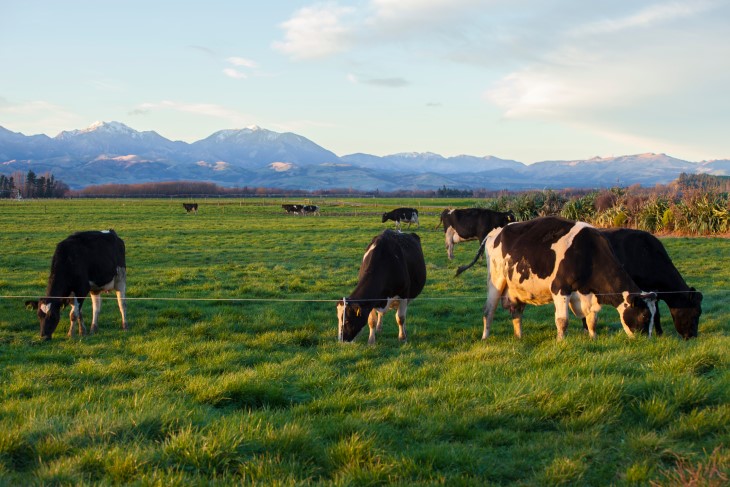
Getting FarmFit
Spring is one of the most challenging seasons on a dairy farm with calving and getting ready for summer.
“The biggest challenges are time and energy,” Kane says.
“Most farmers are getting up at 4am this time of year and there’s nothing to say you won’t be out there at 8pm, so you need to have a plan in place.”
Kane says you have to use the good times to prepare for the bad times.
“When you’ve got spare time and you’re feeling good, that’s the time you need to be preparing for the bad stuff,” he says.
“It might be getting into some good habits, or dealing with some of the old clutter that’s in the head and is holding you back in life.”
Kane has also created FarmFit – a home gym set up from farm equipment and, like his book, it has a cult-like following in New Zealand. The programme runs from January to July to help farmers get fit for calving season.
“We want people to come into this time of year fit and strong and with loads of energy – it makes the physical toll that much easier. It helps a huge amount with your decision making,” he says.
“Farming is the best job in the world but you need to make sure you have some good tools in place so you can enjoy it and do it over your lifetime.”
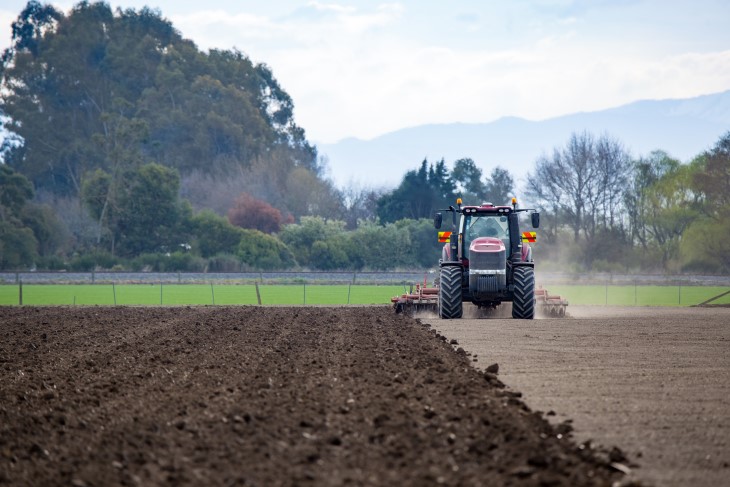
Kane’s tips for managing wellbeing on the farm
- Prioritise your physical fitness.
- I always start my morning with a good breakfast and a stretch routine.
- Have three good meals a day so you’re putting fuel into your body.
- Every morning I write out my job list and focus on my purpose for the day. I need something to aim for so I’m walking out the door with purpose, not just winging it.
- If anything is stressing me out, I write it down in my journal. I find it relieves stress when you put the facts out on a piece of paper rather than keep it in your mind.
- Every three weeks, I get out for a good meal and a couple of pints with some good mates. It’s good to get off farm and great for your perspective.
More information
'Tools for the Top Paddock' by Kane Brisco is available online and in book stores.
For more information on Farmstrong visit their website.




